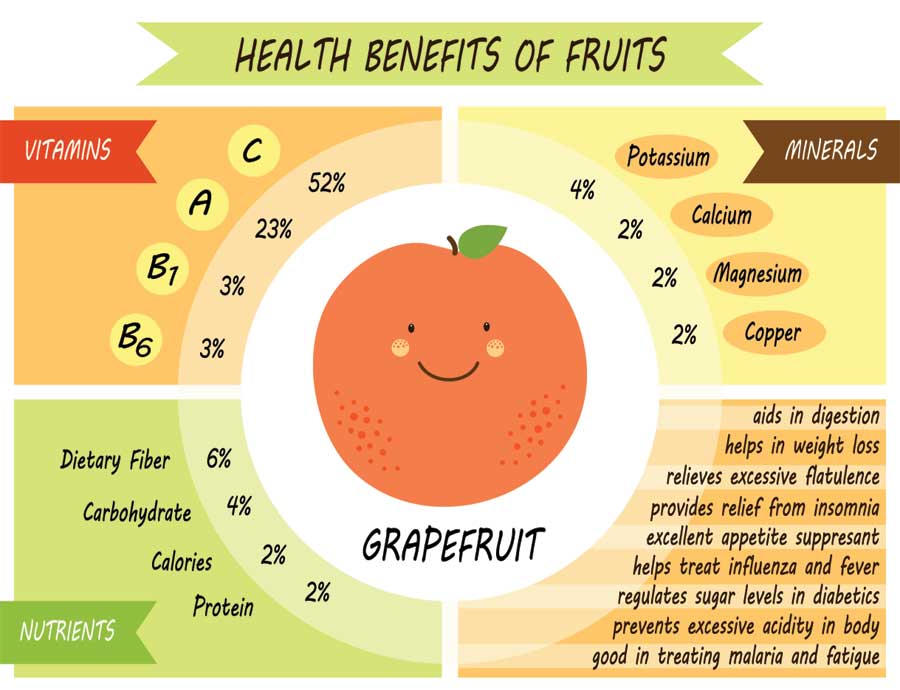
That, in turn, can encourage weight loss. When AMPK gets activated, it encourages the body’s energy-producing processes, like glucose uptake, for example, which helps boost metabolism. The key may be an enzyme called AMP-activated protein kinase ( AMPK), which appears to get activated by an organic compound in grapefruit called nootkatone.

Research continues to reveal that consuming grapefruit benefits weight loss in a a major way. Here are the top six major grapefruit benefits: 1. Related: Hesperidin: The Citrus Bioflavonoid that Supports the Brain & Heart Health Benefits

The pink or red color of a grapefruit equates to it having beneficial beta-carotene and lycopene. Grapefruit nutrition does vary slightly depending on the color of the fruit. In addition to being a low-calorie food that’s also relatively low on the glycemic index, grapefruit is loaded with nutrients. According to Harvard Medical School, grapefruit has a glycemic index of 25, making it one of the lowest glycemic fruit options. Grapefruit is an edible fruit that come from the grapefruit tree ( Citrus paradisi), a citrus tree of the Rutaceae family. In this article, we will focus on grapefruit as a whole citrus fruit and the grapefruit benefits you can obtain by consuming the fruit. Along with consuming the entire fruit, grapefruit juice, grapefruit essential oil and grapefruit seed extract can all be used to benefit your health. Grapefruit has many health benefits, uses and forms. Plus, multiple studies, including one published in the Journal of Medicinal Food, reveal that grapefruit is an extremely smart choice if you’re trying to lose weight with just half a grapefruit per day making a significant impact on weight loss efforts.
:max_bytes(200000):fill(white)/https://dcmzfk78s4reh.cloudfront.net/1576785915084.jpg)
Not surprisingly, it makes the American Institute for Cancer Research’s list of “Foods that Fight Cancer.” ( 1) Grapefruit also contains health-promoting phytochemicals like lycopene and beta-carotene (in the pink and red varieties) as well as limonoids like limonin and flavonoids like naringenin. Just a half a grapefruit each day can ensure the average adult is meeting at least half of typical vitamin C requirements, one of the reasons grapefruit benefits many areas of health. Whatever color you choose, the calories in grapefruit are low, but the flavor and nutrients are high. Grapefruits can be white, yellow, pink or red in color with a taste ranging from sour to sweet - most often a refreshing mix of the two.


 0 kommentar(er)
0 kommentar(er)
